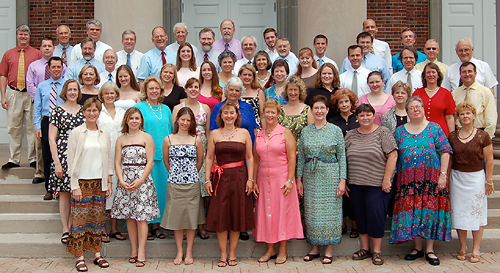Secular Mixed Choir

The Denison Singers premiered I Started Early and Visited the Sea, Ranch Life, Swedish Meatballs, Remembering Clocks, Miracles, The Glory of the Garden, On Alysoun, We are the Music Makers, and Celebrate and Sing, in concerts dating from 1981 to 2022.
I Started Early and Visited the Sea (2/26/21) for SATB Choir and Piano – 4’00”. Emily Dickinson’s poem is not so much “on the water” as it is “in the water.” Although the poem is humorous and fanciful, there is an underlying sense of loneliness and unfulfilled desire, as she depicts the sea as a sensuous admirer. The setting alternately features the piano as crashing surf and gently moving waters. Ambiguity of key suggests floating in the sea.
Ranch Life (1/26/19) [This Morning and Domesticity] for SATB choir and piano – 5’10”. The poems are by Vero Beach, Florida, poet Sean Sexton. They appear in his Blood Writing. Sean is a rancher, a friend, and a welcome collaborator.

Love’s Philosophy (1/2/17) for SATB choir and piano – 3’30”. The choir begins the piece with the basses imitating pizzicato strings as the upper voices set up some Latin-flavored scat singing. This leads to the singing of the text of Percy Bysshe Shelley’s “Love’s Philosophy.” It is a poem that insists that nothing in the world is single, everything mingles with its pair. “Why not I with thine!”
Swedish Meatballs (4/7/15) for SATB chorus and piano – 5’00. This comic setting of a recipe makes a great addition to a secular program.
Remembering Clocks (3/5/13) for SATB choir and piano – 5’40”. This piece, to a poem by contemporary poet Rob Smith, gives you choir the chance to experiment creating sound effects – ticking and dripping. It is also a gentle reminder that times and technology change.
Miracles (2010) for SATB chorus, a cappella – 7’15”. Walt Whitman’s poem sees miracles in everything, making it a joy to sing.
“The Glory of the Garden “ (1998) for SATB choir and piano -4’00”. Rudyard Kipling’s poem describes an English garden and those who work in it.
“On Alysoun” (1991) for SATB chorus, flute and piano. The work is based on an anonymous Middle English love song.
“Give All to Love” for SATB chorus and piano. Second Prize Winner in the Ithaca College/Theodore Presser Choral Composition Contest, 1983. Premiered in October, 1983, at Ithaca College, Ithaca, NY by the Rye High School Chorus. Additional performance at Rye High School, Rye, N.Y.
“Celebrate and Sing” (1981) for SATB chorus and piano. The work uses poetry from Walt Whitman’s Song of Myself. It makes a great concert opener.
“We Are the Music Makers” (1981) for SATB chorus and organ. This setting differs greatly in mood from Arthur O’Shaughnessy’s poem of the same name. His text is largely positive, bragging on the self-confidence of empire builders in an age when the sun never set on the British Empire. Instead, I have chosen to use widely varied tonal relationships to create a mystical and unsettling effect. The message, amidst the corona virus pandemic, becomes one of veiled hope that is both melancholy and cautious.
“Ploughing on Sunday” (1973) for SATB chorus and piano. Wallace Stevens’s poem is a whimsical statement of love for America and its freedoms. The work was premiered in March, 1974, at the Ohio State University, Columbus, with the composer conducting. Additional performances at Denison University on May 19, 1974, by the Denison Singers and at Coastal Carolina Community College in 2009.